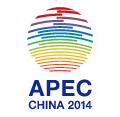Hugh Stephens
Distinguished Fellow, Asia Pacific Foundation of Canada
Vice-Chair of the Canadian National Committee for Pacific Economic Cooperation (CANCPEC)
Back in October of 2016 when the Canada-EU Comprehensive Economic and Trade Agreement, (CETA) was on the cusp of closure, the negotiations hit a roadblock when the Belgian region of Wallonia blocked the necessary consensus for the EU to conclude with Canada. Chrystia Freeland, who was then the minister of international trade, walked out of the negotiations in Brussels and packed her bags to return to Canada. She lamented that “… it is now evident to me, evident to Canada, that the European Union is incapable of reaching an agreement – even with a country with European values such as Canada, even with a country as nice and as patient as Canada.” A core element of her argument was that Canada and Europe shared common values, and therefore the path to an agreement should have been open. As we know, a compromise satisfied Wallonia’s concerns, mainly regarding the so-called investor-state dispute settlement process which allows foreign invested companies to sue governments for alleged discriminatory practices that negatively impact their investments. Canada and the EU went on to sign the agreement, most of whose provisions came into effect on Sept. 21, 2017. The government of Canada has cranked up its communications machine and is touting CETA as “a progressive trade agreement for a strong middle class”.
Source: PECC News feed










